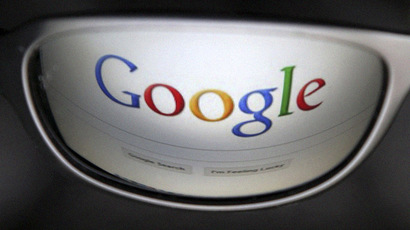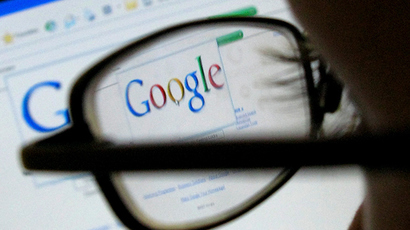Battle of the Titans: Murdoch’s News Corp launches attack on Google

Rupert Murdoch’s News Corporation lashed out at Google on Thursday, saying the powerful search engine is “willing to exploit its dominant market position to stifle competition.” The allegations come amid an antitrust case against Google in Europe.
In a letter to outgoing European Commission antitrust head Joaquín Almunia, News Corp said it was against a proposed antitrust settlement between European authorities and Google. News Corp said Google has become “a platform for piracy and the spread of malicious networks, all while driving more traffic and online advertising dollars to Google.”
“The company has evolved from a wonderfully feisty, creative Silicon Valley start-up to a vast, powerful, often unaccountable bureaucracy,” wrote Robert Thomson, News Corporation’s chief executive, according to The New York Times. “This development reflects the exponential evolution from a company that is open to one that is selectively closed and willing to exploit its dominant market position to stifle competition.”
The settlement aims to give Google competitors more prominence in search engine results. The European Commission said this month that the settlement was not sufficient to resolve antitrust issues.

Google responded to News Corp - which owns many media outlets, including the Wall Street Journal and the Fox Entertainment Group - with a little humor, poking fun at Murdoch’s empire.
“Phew, what a scorcher,” Google said. “Murdoch accuses Google of eating his hamster!”
This is a reference to an infamous 1986 headline - 'Freddie Starr Ate My Hamster' - in the tabloid The Sun. The article said Starr had eaten a hamster, though the British entertainer has vehemently denied these allegations.
Google answered to the claims in a more serious way two weeks ago, when the European Commission reopened the antitrust investigation. Google executive chairman Eric Schmidt said that, contrary to publishers’ claims, “Google is not ‘the gateway to the internet.’”
“Nor is it true that we promote our own products at the expense of competitors… if you want to buy something, whether it is shoes or insurance, we try to show offers and websites where you can actually buy things,” he wrote.
“That’s more relevant than a link to a specialized search engine, where you have to repeat your query. And if you need directions to a pharmacy, you get a Google Map with the closest stores. We think that is a great result for users.”

Others have defended Google, saying the search engine should not
be forced to prioritize listings of its competitors in, say,
airline-flight prices. Competing companies must build a
reliable search engine if they want customers to go directly to
their sites, the argument goes.
"Google didn't become a great search engine when it started out by complaining it wasn't being listed in Yahoo and AltaVista,"wrote Danny Sullivan, editor of Search Engine Land. "It's like you're a newspaper in New York and you're complaining that other newspapers aren't running your articles. It sounds crazy."
The antitrust suit was spawned by several European publishers and others, who claim Google has too much sway over access to information online. These Google competitors have called on European antitrust authorities to reconsider the current proposed settlement with Google, which has developed over the last five years.
“We are afraid of Google,” Mathias Döpfner, chief executive of German publisher Axel Springer, wrote earlier this year in a letter to Google’s Schmidt. “I must state this very clearly and frankly, because few of my colleagues dare do so publicly.”
News Corp had been quiet about the antitrust case until now. Thomson alleged in the letter that Google frequently rigs its search engine results and has turned a blind eye to copyright abuse that violated publishers’ rights online.














